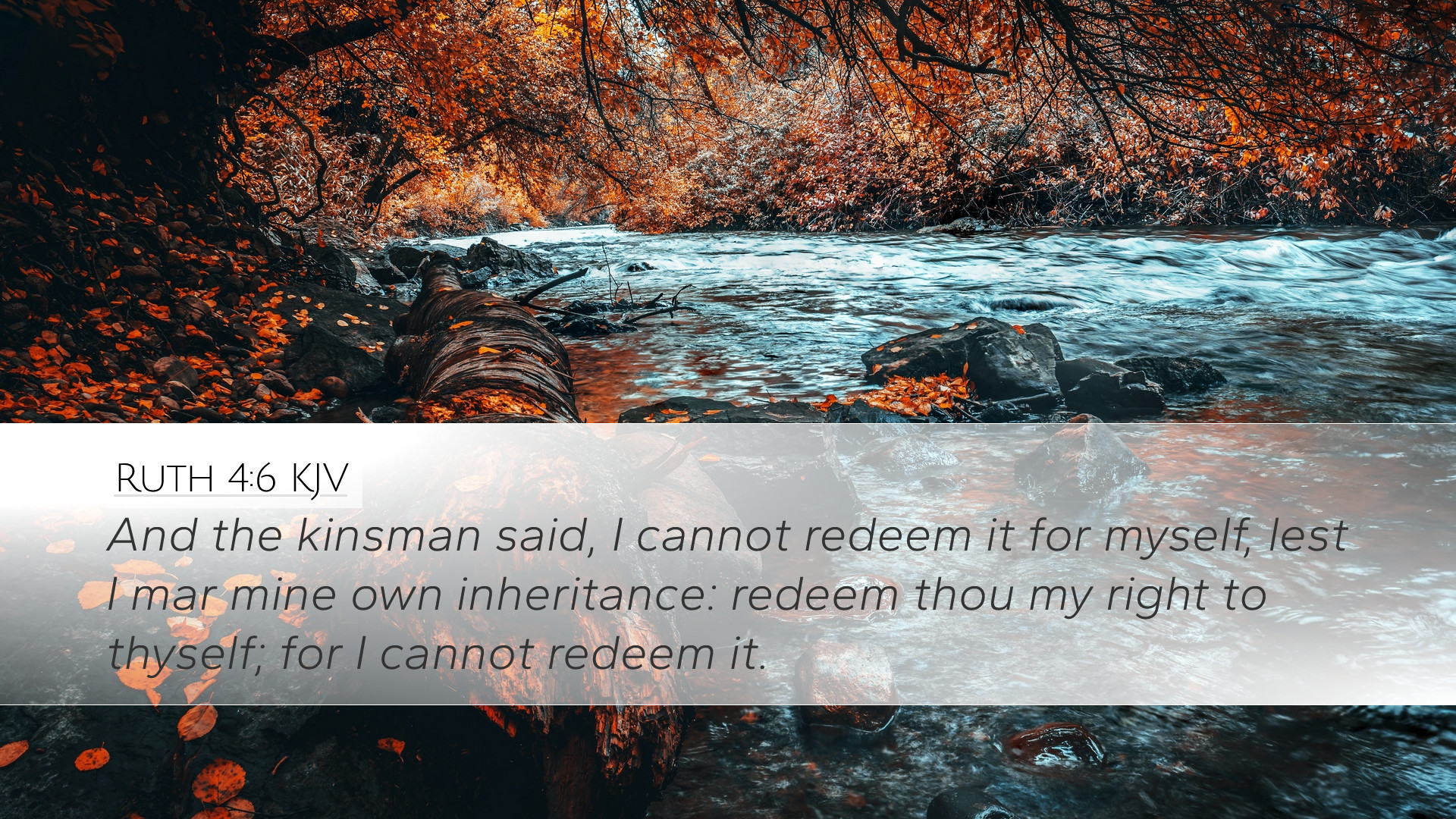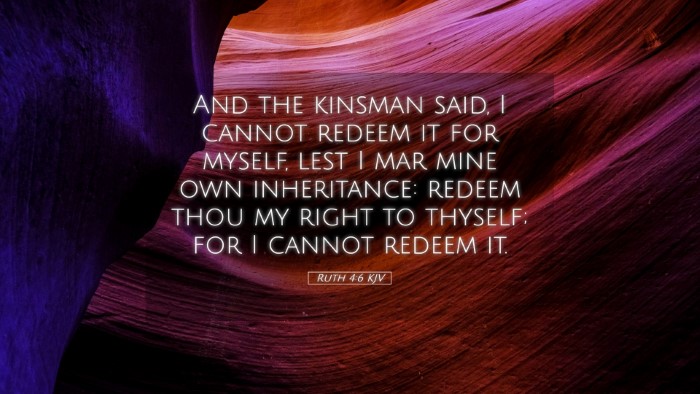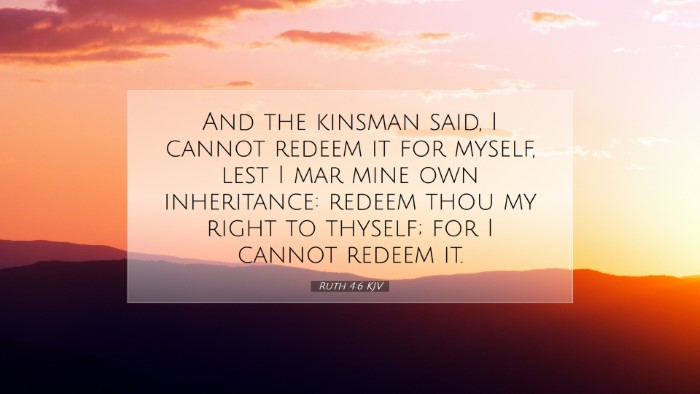Old Testament
Genesis Exodus Leviticus Numbers Deuteronomy Joshua Judges Ruth 1 Samuel 2 Samuel 1 Kings 2 Kings 1 Chronicles 2 Chronicles Ezra Nehemiah Esther Job Psalms Proverbs Ecclesiastes Song of Solomon Isaiah Jeremiah Lamentations Ezekiel Daniel Hosea Joel Amos Obadiah Jonah Micah Nahum Habakkuk Zephaniah Haggai Zechariah MalachiRuth 4:6
Ruth 4:6 KJV
And the kinsman said, I cannot redeem it for myself, lest I mar mine own inheritance: redeem thou my right to thyself; for I cannot redeem it.
Ruth 4:6 Bible Commentary
Commentary on Ruth 4:6
Bible Verse: “And the kinsman said, I cannot redeem it for myself, lest I mar mine own inheritance: redeem thou my right to thyself; for I cannot redeem it.” (Ruth 4:6)
Introduction
The Book of Ruth reveals profound insights about redemption, divine providence, and the nature of relationships. In this significant verse, we encounter the kinsman who, confronted with the opportunity to redeem Naomi's land and marry Ruth, ultimately declines the responsibility. This refusal is rich with theological implications and practical lessons.
The Role of the Kinsman Redeemer
The concept of the kinsman redeemer (Hebrew: goel) is vital to understanding the narrative of Ruth. According to the traditions of Israel, a close relative had the right to redeem family land and to marry a widow to preserve the family line. This obligation is woven deeply within the fabric of Israelite law, showcasing God’s concern for familial continuity and social justice.
Exegesis of the Verse
The kinsman's refusal to redeem Ruth, citing concern for his own inheritance, brings to light several themes:
- Self-Interest vs. Duty: The kinsman prioritizes his own financial security and estate over the obligations of kinship. This highlights a common human tendency to act in self-interest rather than selflessness, contrasting starkly with Boaz’s character, who ultimately acts with integrity and sacrificial love.
- Fear of Loss: His apprehension about marring his own inheritance illustrates how fear can hinder one’s ability to fulfill divine responsibilities. This resonates with the caution against allowing fear to dictate one’s actions in spiritual matters.
- Implication of Legacy: The threat to his inheritance suggests an understanding of legacy that prioritizes material wealth over spiritual fulfillment. By rejecting the opportunity, he not only misses a chance for personal legacy but also for participating in God’s greater plan for redemption.
Theological Reflections
This refusal is multifaceted in its implications:
- Divine Providence: The kinsman's rejection allows Boaz to fulfill his role, which is part of God's providential plan. Here, the providence of God orchestrates events behind the scenes, often giving way to human actions that seem counterproductive from a worldly perspective.
- Foreshadowing Christ: The kinsman in this narrative may be seen as a type of Christ, demonstrating that Jesus, the ultimate Redeemer, does not seek his own welfare but lays down his life for others. His willingness to bear the cost of redemption contrasts with the hesitation of the kinsman.
Practical Implications for Today
For pastors, students, and researchers in theology, this passage serves as a reflective prompt:
- Understanding Duty: Believers are called to consider their own obligations toward others in light of their faith. The lesson here is to prioritize God’s commands over personal gain.
- Understanding Fear and Inheritance: What fears prevent us from fully embracing our roles as bearers of the Gospel? This verse encourages deep reflection on how we view our inheritance in Christ.
Conclusion
Ruth 4:6 is a rich text inviting readers to wrestle with the tensions between personal desires and communal obligations. It encourages a selfless love, cultivating a deeper understanding of the character of Christ as the Redeemer who fully embraces His role, even at the cost of his own life. As this narrative unfolds, it challenges believers to embody the principles of self-sacrifice, duty to family and community, and faith in God’s providential workings.


